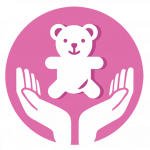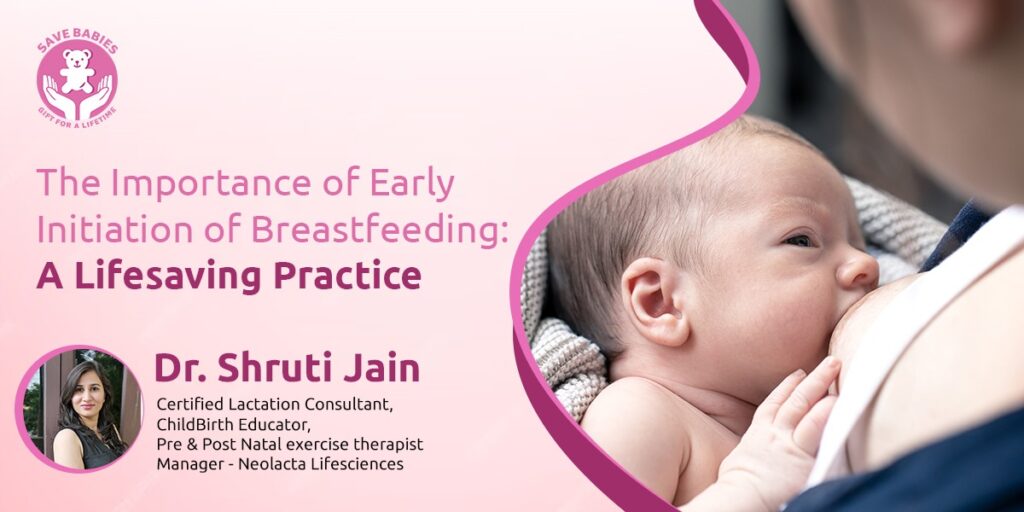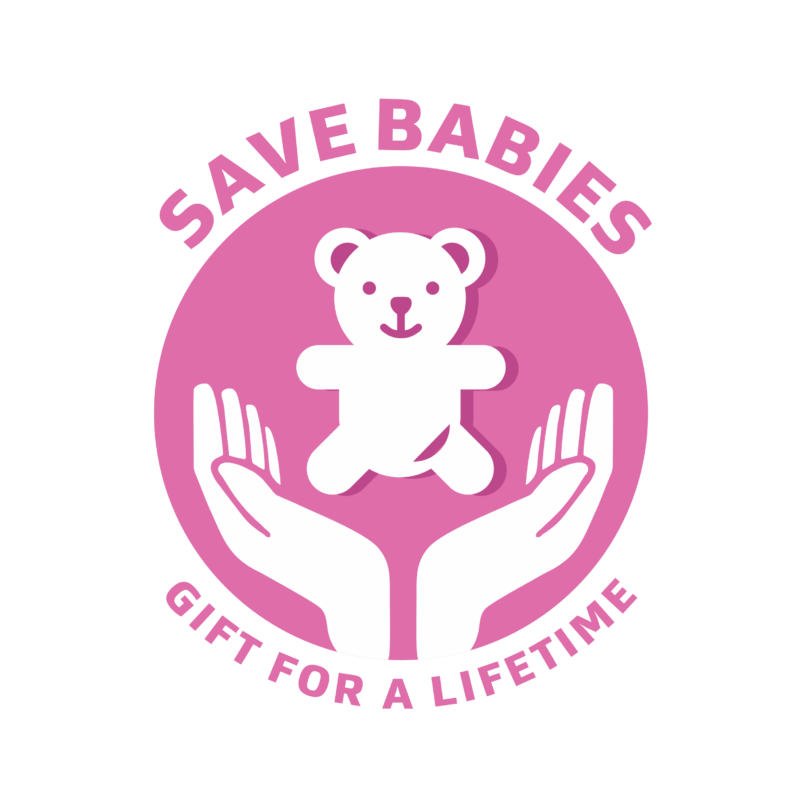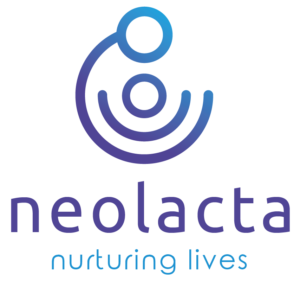Breastfeeding, often hailed as nature’s perfect provision, plays a pivotal role in ensuring the health and well-being of infants. It is a practice that goes beyond mere nourishment, establishing a profound connection between mother and child. In this blog, we delve into the core of breastfeeding, with a special focus on the critical concept of Early Initiation of Breastfeeding (EIBF) and its monumental impact on infant health.
Significance of Breastfeeding
Breastfeeding is not just a biological necessity but a holistic approach to infant care. It provides essential nutrients, antibodies, and a myriad of health benefits that lay the foundation for a child’s growth and development. The World Health Organization (WHO) recommends exclusive breastfeeding for the first six months, underlining its unparalleled significance in shaping a child’s health trajectory.
Early Initiation of Breastfeeding: A Lifesaving Practice
The essence of our discussion in this blog revolves around the golden period immediately after birth – the first hour. Early Initiation of Breastfeeding (EIBF) refers to the initiation of breastfeeding within this crucial timeframe. It is during this window that the new-born is most receptive to receive the myriad benefits of colostrum, the first milk produced by the mother.
Acknowledging that there are situations where mother’s milk might be temporarily unavailable, we also delve into the relevance of donor human milk (DHM) as a potential substitute.
The First Hour: A Golden Period
Understanding Early Initiation of Breastfeeding
Early Initiation of Breastfeeding involves introducing the new-born to the mother’s breast within the first hour after delivery. This practice is rooted in the biological readiness of both mother and baby, optimizing the transfer of colostrum and establishing a strong foundation for breastfeeding.
The Critical Nature of Starting Breastfeeding Early
The first hour is deemed a golden period due to the heightened receptivity of the new-born’s digestive system. It is during this time that colostrum, often referred to as “liquid gold,” is produced. Colostrum is rich in antibodies, providing the new-born with a protective shield against infections and diseases.
The Unique Benefits of Colostrum
Colostrum is a nutrient-dense substance that not only satisfies the baby’s immediate hunger but also jumpstarts their immune system. Its high concentration of antibodies, white blood cells, and essential nutrients sets the stage for a robust defence against infections.
Introduction of DHM for Bucco Mucosal Painting
In situations where a mother’s milk is temporarily unavailable, donor human milk (DHM) steps in as a potential alternative. DHM, when used for bucco mucosal painting, provides the new-born with essential immunological benefits until the mother can resume breastfeeding.
Lifesaving Benefits for New-borns
Reduced Risk of Infections and Diseases
The act of breastfeeding in the first hour significantly reduces the risk of infections and diseases in new-borns. The antibodies present in colostrum provide immediate protection, creating a shield against common ailments.
Immune-Boosting Properties of Colostrum
Colostrum serves as a powerful elixir for the new-born’s immune system. It not only guards against infections but also promotes the development of a robust defence mechanism that can endure throughout infancy and beyond.
Maternal Health Benefits
Stimulating Uterine Contractions and Reducing Postpartum Bleeding
Breastfeeding is not only beneficial for infants; it also holds a multitude of advantages for mothers. Early breastfeeding stimulates uterine contractions, aiding in the natural process of involution. This helps reduce postpartum bleeding, promoting a quicker recovery for mothers after childbirth.
Contributing to Overall Postpartum Recovery
The act of breastfeeding in the first hour contributes significantly to the overall postpartum recovery for mothers. It accelerates the healing process, both physically and emotionally, establishing a positive trajectory for the postpartum period.
Establishing Emotional and Physical Bond
Beyond its physiological benefits, breastfeeding fosters a profound emotional and physical bond between mother and child. The intimate connection formed during these early moments creates a foundation for a strong and nurturing relationship.
Psychological and Emotional Aspects
Emotional Connection Fostered Through Early Breastfeeding
Early initiation of breastfeeding fosters a deep emotional connection between the mother and the new-born. The physical closeness, skin-to-skin contact, and the act of nourishing create a bond that extends beyond the biological need for sustenance.
Psychological Benefits for Mother and New-born
The psychological benefits of breastfeeding extend to both the mother and the new-born. For mothers, it promotes a sense of accomplishment and fulfilment, while for the new-born, it establishes a feeling of security and comfort.
Global Initiatives and Recommendations
Overview of International Advocacy
Internationally, various organizations champion the cause of early initiation of breastfeeding. The World Health Organization (WHO) and UNICEF lead the charge with guidelines and recommendations promoting the importance of breastfeeding within the first hour after birth.
WHO and UNICEF Guidelines
The WHO and UNICEF guidelines emphasize the vital role of early initiation in ensuring optimal health outcomes for both mothers and new-borns. These guidelines serve as a foundation for global initiatives that aim to raise awareness and encourage the practice of EIBF.
Global Efforts
Around the world, there is a concerted effort to promote breastfeeding, with an acknowledgment of the need for donor milk in certain situations. Global initiatives recognize the importance of both breastfeeding practices and the availability of donor milk when necessary.
Addressing Challenges and Barriers
Common Challenges in Ensuring Early Initiation
Despite the recognized benefits, challenges in ensuring early initiation persist. These challenges may include medical complications, lack of awareness, or institutional practices that delay the initiation of breastfeeding. Addressing these issues is crucial to fostering widespread adoption of EIBF.
Strategies to Overcome Barriers
Overcoming barriers to early initiation involves a multi-faceted approach. Strategies may include educational programs, training for healthcare professionals, and advocacy to raise awareness about the importance of early breastfeeding. In situations where a mother’s milk is temporarily unavailable, the strategic use of donor milk becomes a vital tool.
Role of Education and Awareness
Education and awareness play a pivotal role in promoting early initiation of breastfeeding and the use of donor milk. Empowering communities with knowledge about the benefits and addressing misconceptions helps create an environment conducive to embracing these practices.
Conclusion
In conclusion, the importance of Early Initiation of Breastfeeding goes beyond the immediate health benefits for new-borns. It extends to the holistic well-being of mothers, fostering emotional connections and contributing to their postpartum recovery. As we recognize global initiatives and recommendations, it becomes evident that advocating for early initiation and, when needed, the use of donor milk, is a shared responsibility. Let us continue to champion breastfeeding practices and donor milk initiatives, ensuring a healthier and brighter future for both mothers and new-borns. The journey of early breastfeeding is not just a biological process; it is a lifeline that shapes the foundation of a flourishing and interconnected society.




